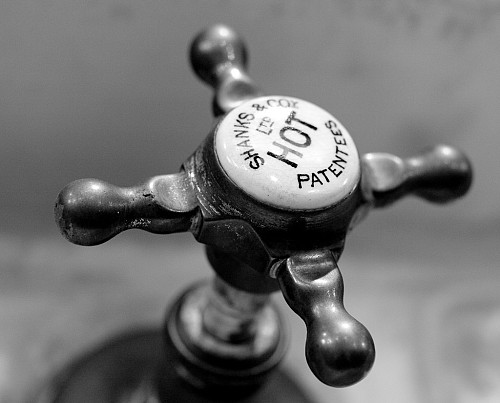Your Water Heater: Use It Efficiently, Economically & Safely
Let’s hear it for that hard-working yet under-appreciated home appliance … your water heater! While not as glamorous as a stainless steel fridge or a professional chef’s range, the hot water heater nevertheless plays an essential role in your daily hygiene and comfort. Find out how to use this device efficiently, economically, and safely.
Buy the right size water heater
Traditional water heaters heat and store water in a tank, which can range in volume from 23 to 60 gallons or more. If you’re planning to install a new water heater, size it according to either:
- the number of people in your home. A household of 2-3 members will need a 40 gallon tank for normal consumption or a 60 gallon tank for heavy use. For 4-5 people, a 60 gallon tank will be sufficient for average needs, while an 80 gallon tank is recommended for higher use.
OR - the amount of hot water that your family uses at peak hours. It's simple to calculate your hot water usage with the Energy.gov worksheet.
Be aware that a tank too small for your needs means you'll end up taking a lot of cold showers, but an overly large tank is an energy-guzzler and might not fit into the space your old heater occupied.
Save energy these ways
Save on energy costs (and possibly reduce the size of water heater you need) is by being savvy in your use of hot water. Some hot water-saving dos and don’ts:
- DO insulate your hot water pipes to keep water hotter for longer
- DON'T insulate your hot water storage tank -- modern water heaters come with built-in insulation
- DO take shorter showers
- DO install low-flow showerheads and sink faucet aerators
- DON’T wash dishes manually; use your dishwasher instead (full loads only, please!)
- DO launder clothes in cold water whenever feasible
- DON’T leave the hot water running while you scrub your hands or shave
- DO take care of plumbing leaks promptly
- DO drain the tank about every three months to remove sediment which can obstruct heat transfer and lower your heater's efficiency
- DO replace a hot water heater over 15 years old with a new Energy Star certified product
- DO consider installation of an on-demand (tankless) water heater or a water heater powered by a heat pump
Earn tax credit – still! -- with a solar water heater
A solar water heater is the most environmentally friendly kind, since it's powered not by fuel but by the sun. This is ideal if you live in a sunny state like Arizona; you’ll have an abundant supply of naturally heated water. However, in most areas of the US, you will need a backup power source for early mornings and cloudy weather. The federal tax credit for installation of an energy-efficient water heater expired at the end of 2016 for all but solar water heaters, which will still earn you the credit through December 31, 2021 (although on a decreasing step-down scale).
Stay safe
A hot bath or shower is cleansing and relaxing. However, if the temperature is too high, it can injure sensitive skin. Turning your water heater down to 120 degrees is often recommended for scald prevention, but too low a heat may allow the growth of dangerous legionella bacteria, which can reproduce in water up to 122 Fahrenheit and survive at temperatures as high as 131 degrees F. Besides, it’s impossible to adjust the (often surprisingly high) temperature when you have a solar water heater. A smarter safety measure is having a licensed plumber install anti-scald devices on your bathtub faucet and showerhead.
Laura Firszt writes for networx.com.
Updated November 13, 2018.
Looking for a Pro? Call us (866) 441-6648

Average Costs
Related Experiences

Gas Line Replacement By A Plumber Who Takes Pride In His Work

Four Essential Points That Helped Me Install The Best Toilets




